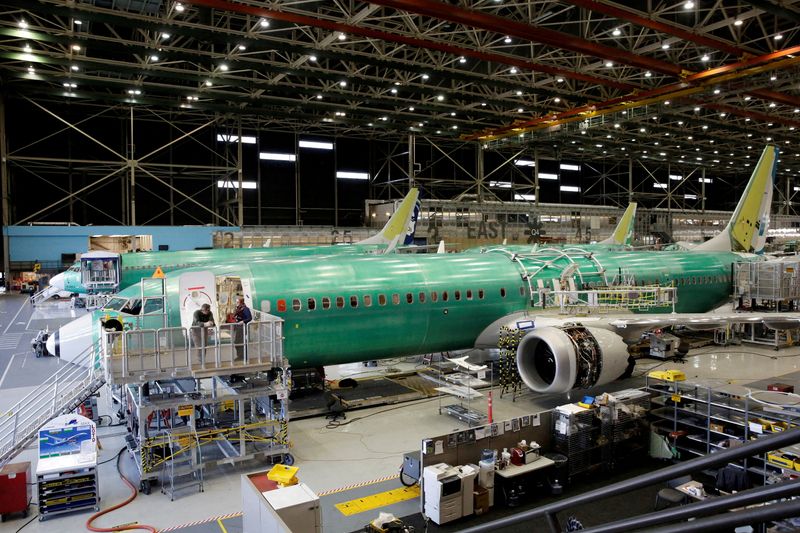By Tim Hepher and Padraic Halpin
DUBLIN (Reuters) -Airlines face years of plane shortages, driving up costs and setting the stage for higher fares, as increased oversight in the wake of a Boeing (NYSE:BA) 737 MAX 9 cabin blowout exacerbates delays caused by weak supply chains, industry officials said.
The warning came as aircraft lessors, bankers and airlines met in Dublin - home to a booming global air finance sector - for the first time since the Alaska Airlines incident on Jan. 5 led to a partial grounding and pushed Boeing into a new safety crisis.
For months, aviation has been struggling to keep pace with a post-pandemic travel boom amid labour and parts shortages.
But widespread outrage over the near disaster that led to an emergency landing with a gap in the side of an aircraft, but no major injuries, has added a new layer of regulatory risk.
"Demand is more or less a slam dunk; the question is when does the supply catch up?" Rob Morris, head of global consultancy at Ascend by Cirium, told Reuters as delegates gathered for the week-long Airline Economics conference.
"We have estimated 2026 or 2027, but there must be a risk on the downside now because of the MAX."
The U.S. Federal Aviation Administration last week took the unusual step of ordering Boeing to stop increasing 737 MAX production until quality control concerns highlighted by the discovery of loose bolts in the fleet were addressed.
Successive safety crises over Boeing's fastest-selling model, following MAX crashes in 2018 and 2019, have prompted regulators to tighten control over development and now production.
That comes at a time when Airbus and Boeing are trying to increase production to cope with a surge in demand.
That is potentially good news for leasing companies that have already placed big plane orders and will now secure a bigger return as airlines rush to lease planes. But many are also struggling to get their own new planes delivered on time.
For airlines it could mean a gap in receiving new technology needed to lower costs and reduce emissions, as well as higher lease rates. That in turn could lead to higher fares.
Air Lease (NYSE:AL) Executive Chairman Steven Udvar-Hazy warned broader supply challenges would continue and expressed doubts that Airbus would meet a target to sharply increase output to 75 single-aisle jets a month in 2026.

"I think certifying any new airplane nowadays is going to be much more costly and will take a longer period of time. And I don't think the industrial base, the supply chain right now is really ready to be able to support a brand new airplane design," Udvar-Hazy told the conference.
An Airbus executive defended the group's target while a spokesperson declined comment ahead of upcoming earnings.